Abstract
This is an account of the life and work of Robert Koch (1843-1910), Nobel Laureate in Medicine and a founder of the science of bacteriology. In particular, Koch's researches into tuberculosis are described--the discovery of the tubercle bacillus, the controversy regarding the human and bovine types, the Koch phenomenon, and the introduction of tuberculin, which proved to be ineffective as a cure but became important as a diagnostic tool in the management of tuberculosis. By his achievements in this field, Koch may be considered to be the father of the scientific study of tuberculosis. On the occasion of the centenary of Koch's discovery of the tubercle bacillus in 1882, we pay tribute to this great German master of medicine.
Full text
PDF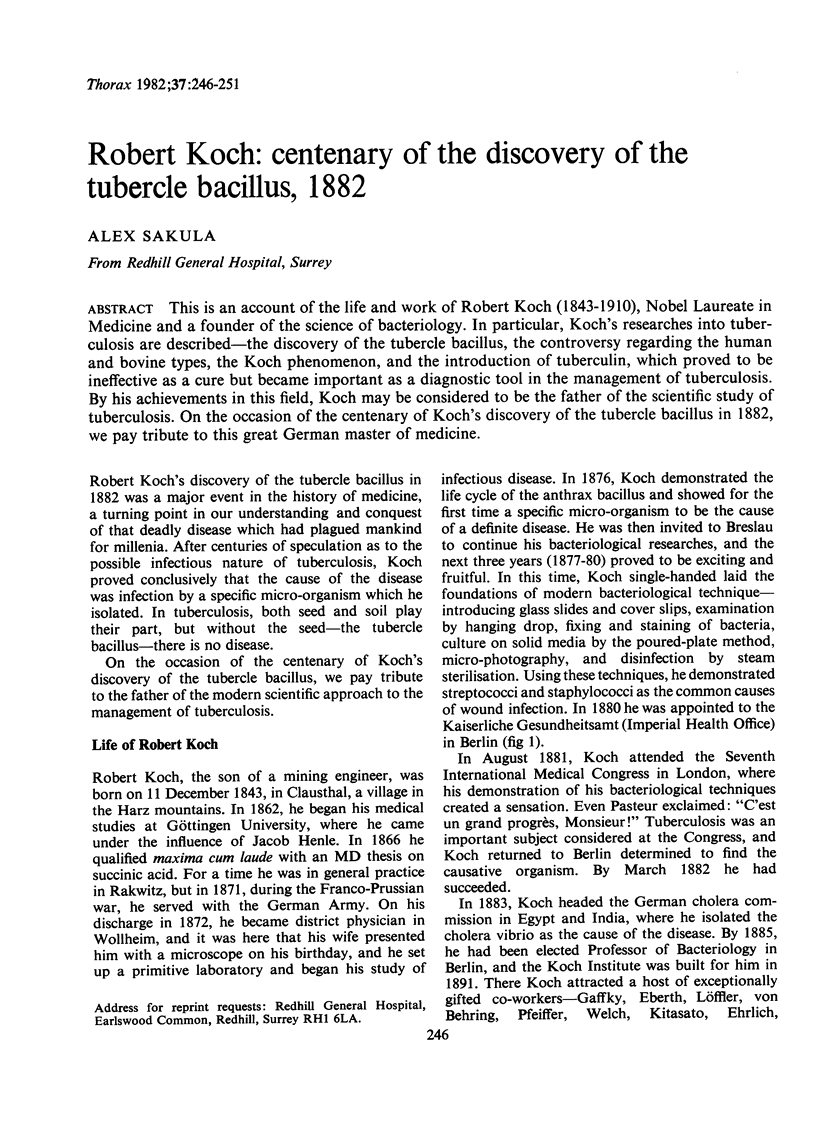
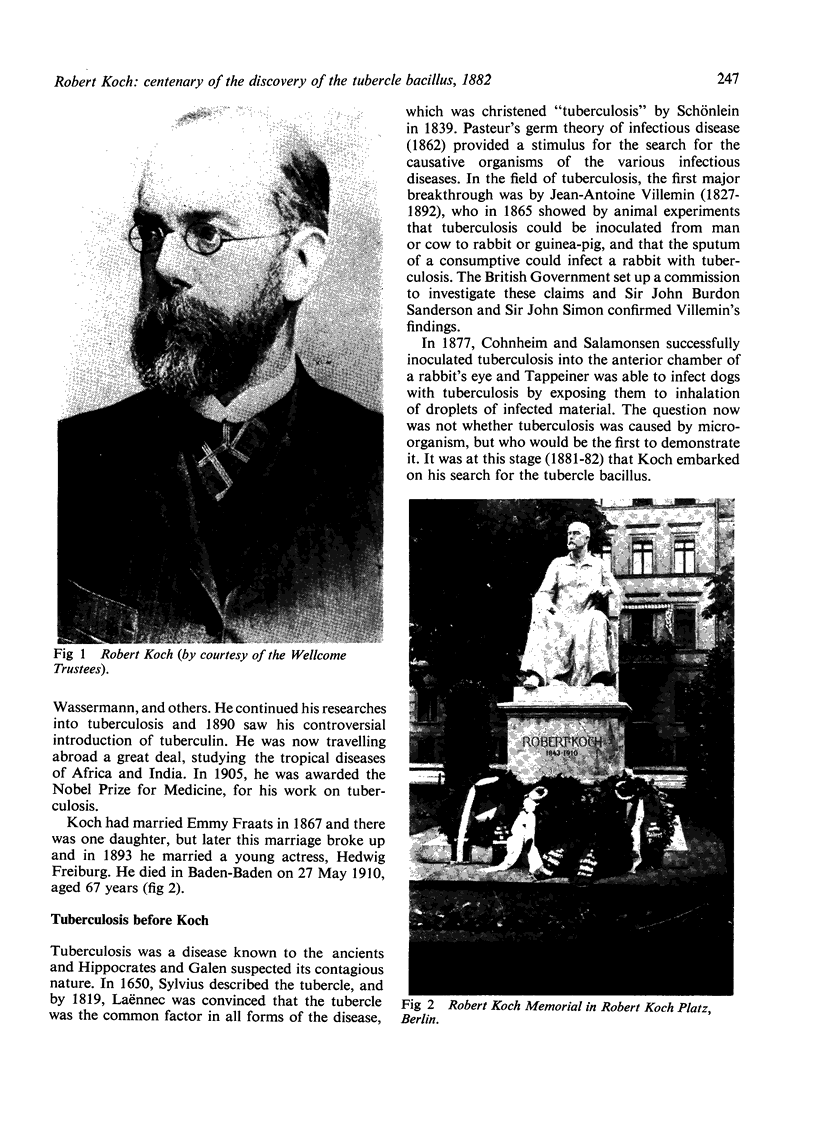
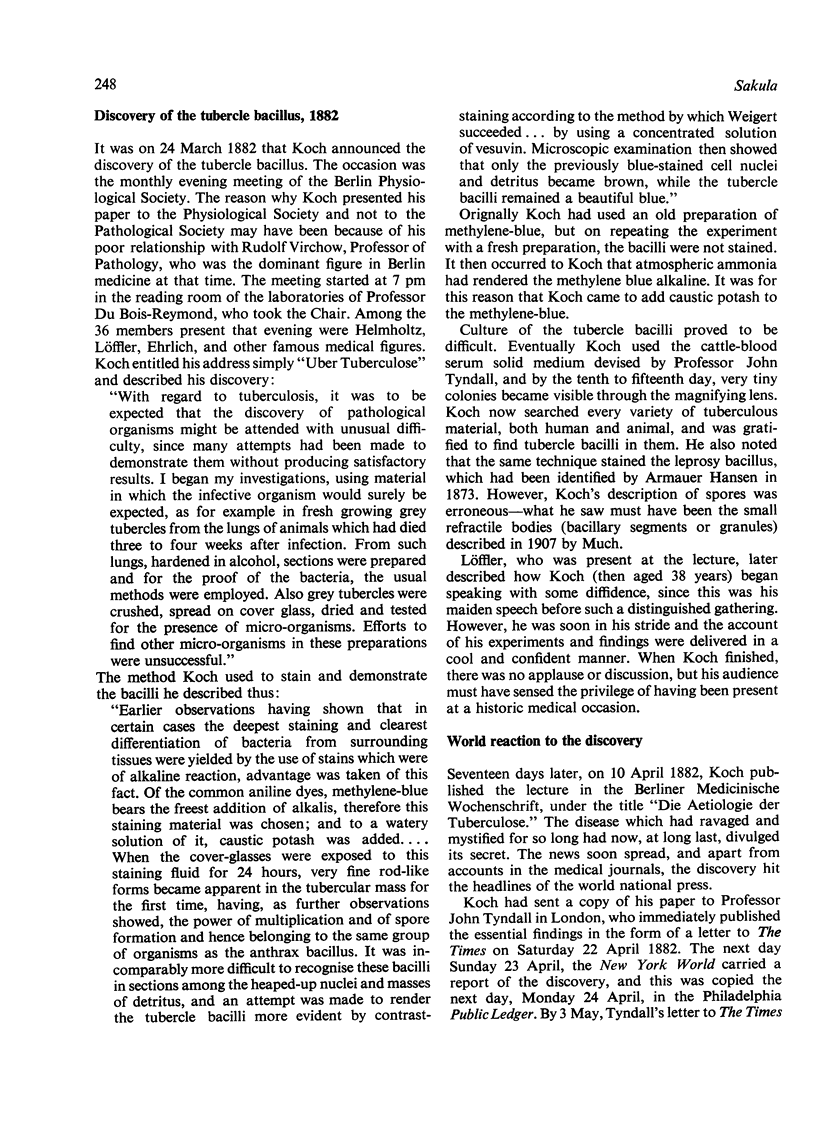
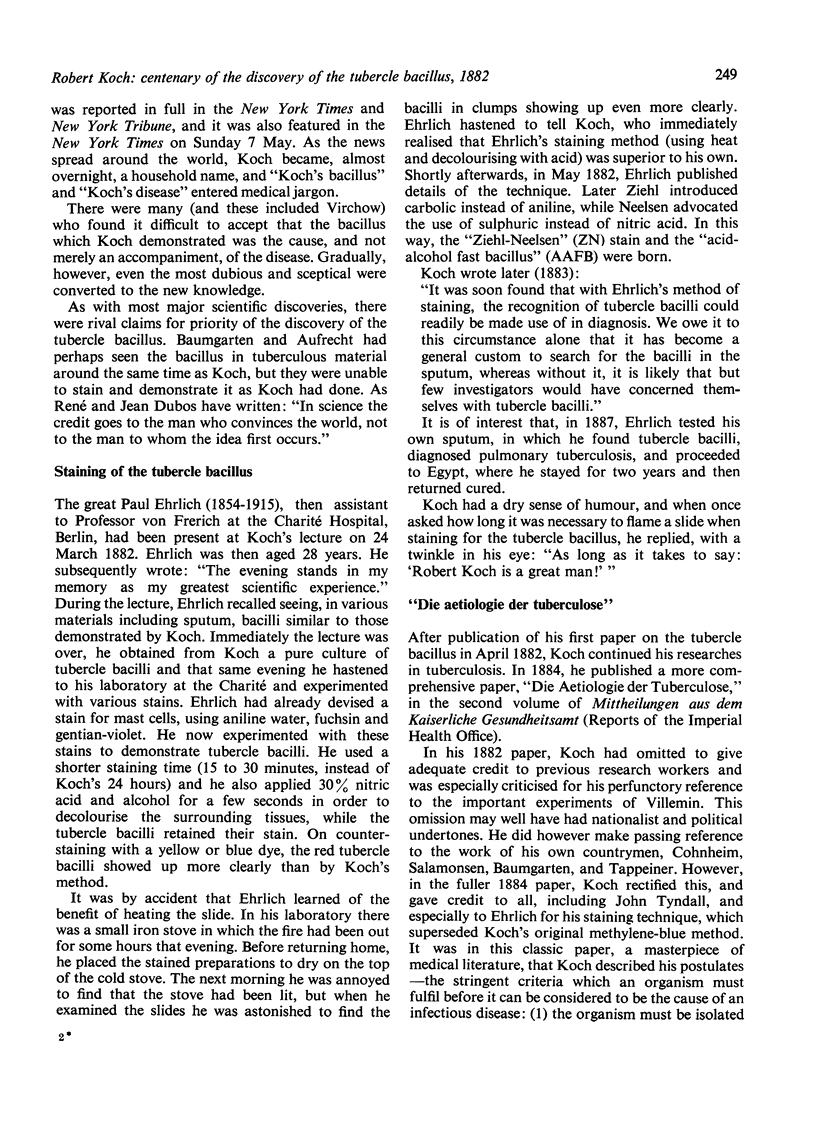
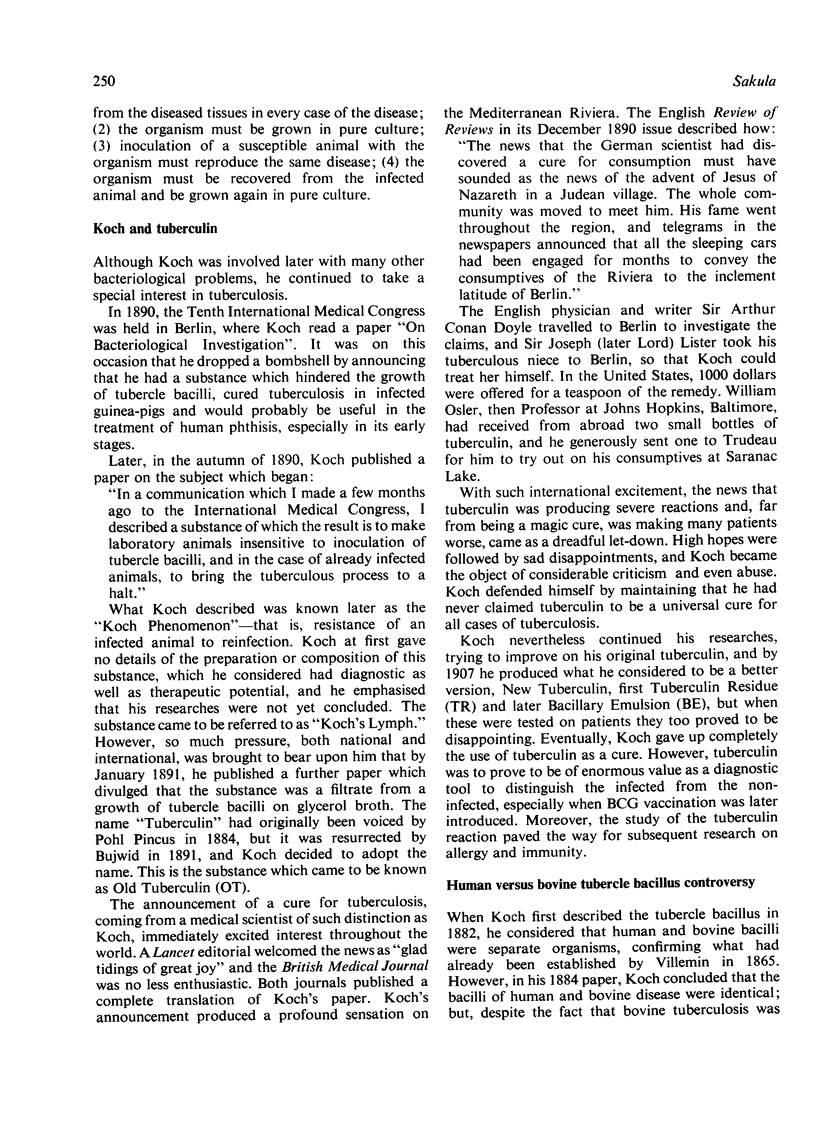
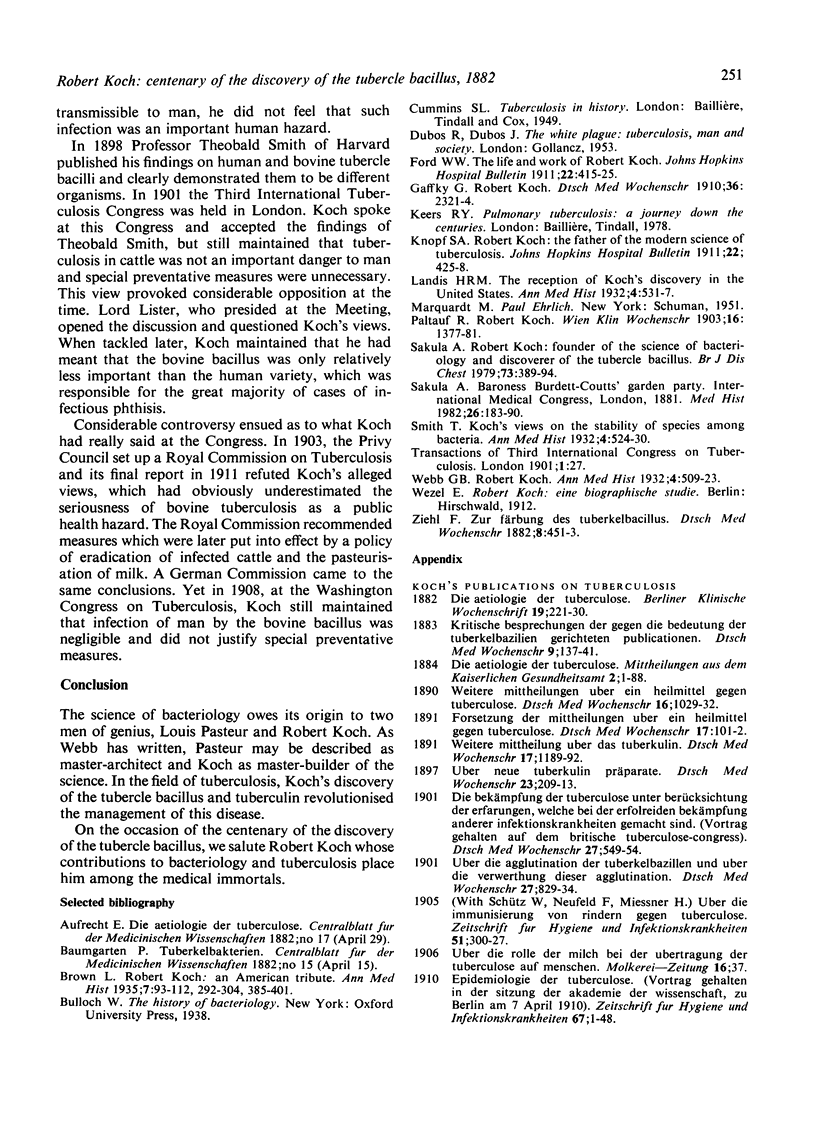
Images in this article
Selected References
These references are in PubMed. This may not be the complete list of references from this article.
- Sakula A. Baroness Burdett-Coutts' garden party: the International Medical Congress, London, 1881. Med Hist. 1982 Apr;26(2):183–190. doi: 10.1017/s0025727300041168. [DOI] [PMC free article] [PubMed] [Google Scholar]
- Sakula A. Robert Koch (1843--1910): founder of the science of bacteriology and discoverer of the tubercle bacillus. A study of his life and work. Br J Dis Chest. 1979 Oct;73(4):389–394. [PubMed] [Google Scholar]





